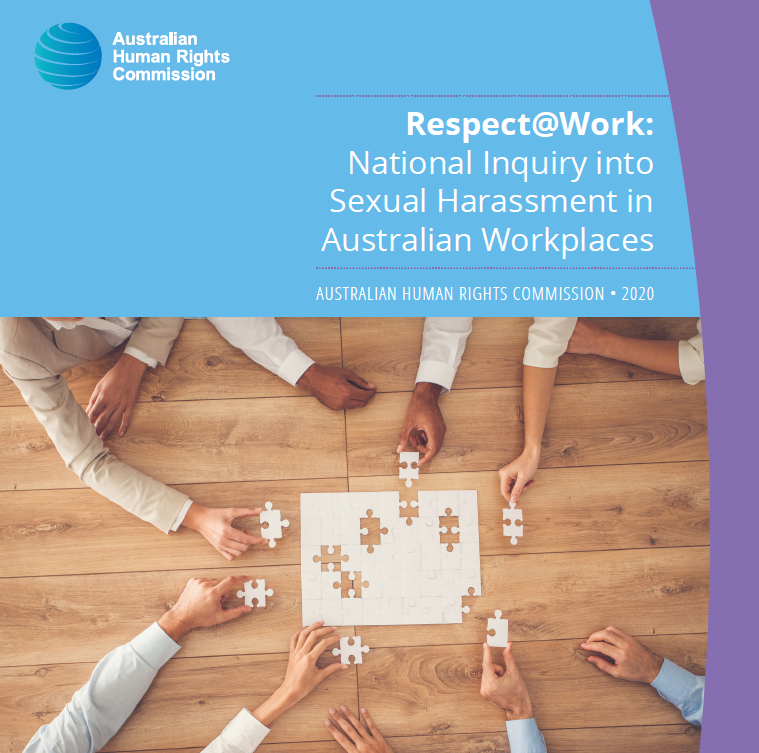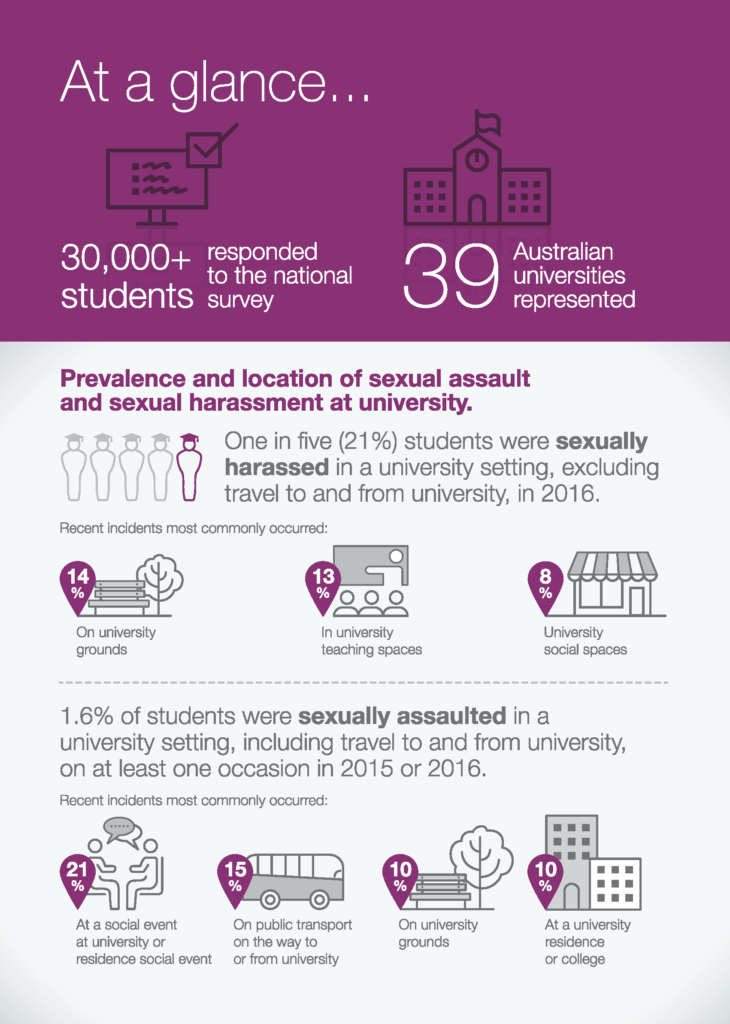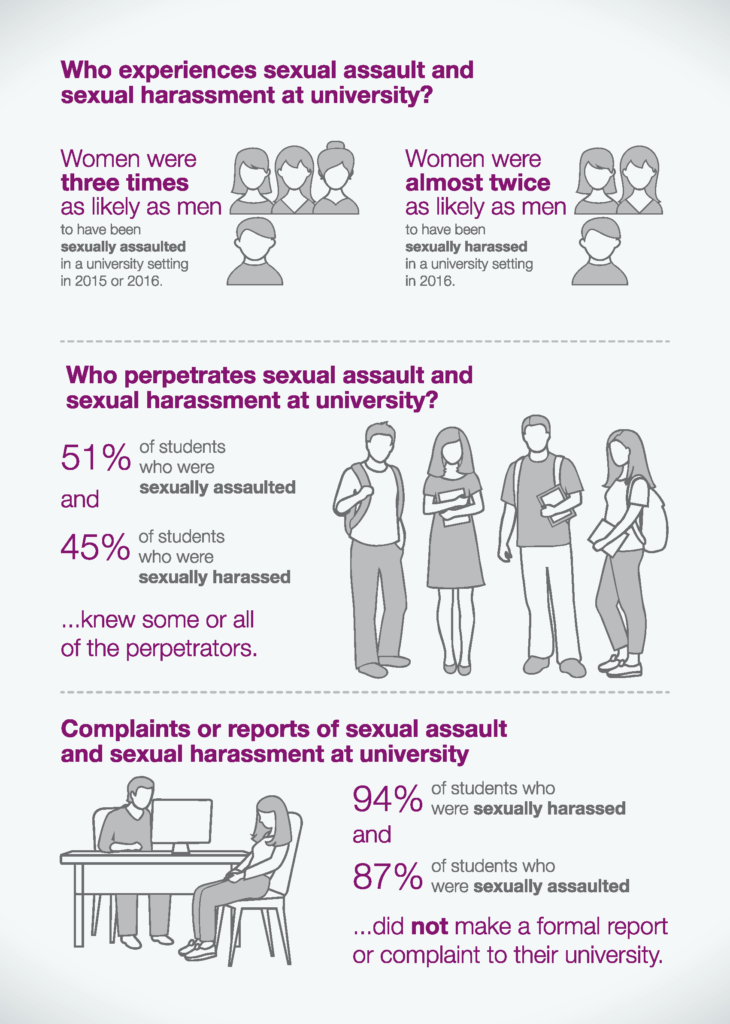In this webinar, Australia’s Sex Discrimination Commissioner Jenkins outlined how SAGE subscribers can use the findings from the Respect@Work: Sexual Harassment National Inquiry Report (2020).
The webinar was facilitated by Professor Kay Latham, the first Victorian Dean STEMM Diversity and Inclusion, of RMIT University.

Collecting and reporting gender equity data is crucial
Commissioner Jenkins discussed the importance of data and research on the nature of workplace sexual harassment and its impacts on individuals and businesses.
SAGE was cited in Respect@Work as an effective model for encouraging positive organisational change; eliminating sexual harassment is one of the Athena Swan principles. Commissioner Jenkins described the vital importance of SAGE member organisations collecting and reporting data related to gender equity.
“One of the primary drivers of sexual harassment is gender inequality,” said Commissioner Jenkins. “Reporting on gender equality, particularly at leadership levels, is a critical part of preventing sexual harassment. SAGE takes a proactive and positive approach.”
The sobering statistics on sexual assault and harassment at Australian universities
Commissioner Jenkins shared insights from the 2017 Change the course report. From a survey of 30,000 students at 39 Australian universities in 2016, one in five (21 per cent) students was sexually harassed in a university setting in the previous year.


Actions for the higher education and research sector
Commissioner Jenkins highlighted the Respect@Work recommendations that were most relevant to the higher education and research institutions, such as:
- Leadership and governance: ensuring leaders engage with students
- Primary prevention: including targeted educational campaigns to address gender inequality
- Ensuring students have access to specialist support
- Monitoring responses: to build on evidence-based information and training for staff and students
Commissioner Jenkins emphasised the role that universities have to play in the primary prevention of sexual harassment, describing the unique position of universities in directly influencing gender equity attitudes in young people during their critical transition from school to higher education. “Advancing gender equality more broadly will be a critical factor in addressing sexual harassment,” she added.
The Commissioner acknowledged the breadth of work being carried out by Australian universities to implement the report’s recommendations, describing promising improvements in the establishment of more student support services and anonymous reporting lines for sexual harassment and assault.
The Australian university responses to the Change the Course report can be viewed with the 18 month milestone responses and are being audited by the Human Rights Commission and the Tertiary Education Quality and Standards Board.
Commissioner Jenkins also highlighted the importance of universities working with industry. “It has been my experience working directly with universities that industry initiatives are critical if we want to change sexual harassment,” she said.
 Australia’s Sex Discrimination Commissioner Kate Jenkins. Photograph: Supplied
Australia’s Sex Discrimination Commissioner Kate Jenkins. Photograph: Supplied
The need for STEM-specific responses
“The STEM sector is so troubled in terms of gender equity,” said Professor Latham, who has been a driving force behind RMIT’s SAGE journey.
Professor Latham drew attention to focus areas such as addressing power imbalances between supervisors and higher degree research students, as well as job insecurity in the female STEM workforce, who are disproportionately represented in junior and casual academic roles.
This key issue has come to the foreground in the 2020 research report on the impact of COVID-19 on women in the STEM workforce.
COVID-19 must not halt efforts to eradicate sexual harassment
Webinar participants discussed preventing sexual harassment in the context of the COVID-19 pandemic. A growing number of SAGE members and higher education sector partners have signed a statement pledging their commitment to preserve gender equity as a higher education priority during the crisis and recovery period of COVID-19 pandemic.
“Sexual harassment is a problem that continues to need urgent attention,” said Commissioner Jenkins.
“While the government’s response to the Respect@Work recommendations may be delayed due to COVID-19, tertiary education institutions and workplaces have the information they need to create more productive and respective workplaces.
“The breadth and variety of our recommendations reflect that sexual harassment is a complex issue. But the core of our message is simple: sexual harassment is not inevitable and it is preventable.”



